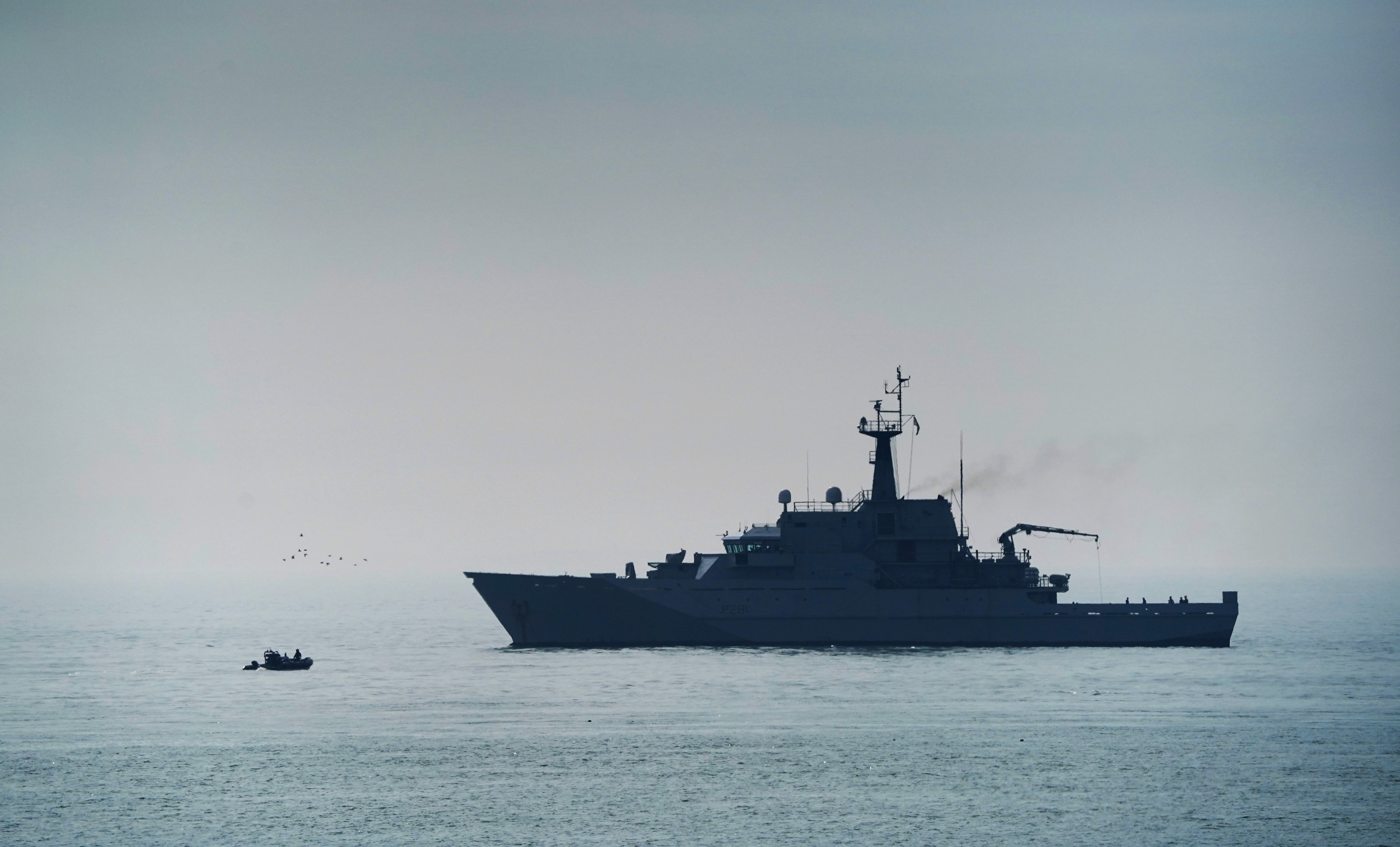Royal Navy to hand responsibility for Channel migrant boat crossings back to Home Office
‘Primacy’ expected to be relinquished in January following a formal review

Your support helps us to tell the story
From reproductive rights to climate change to Big Tech, The Independent is on the ground when the story is developing. Whether it's investigating the financials of Elon Musk's pro-Trump PAC or producing our latest documentary, 'The A Word', which shines a light on the American women fighting for reproductive rights, we know how important it is to parse out the facts from the messaging.
At such a critical moment in US history, we need reporters on the ground. Your donation allows us to keep sending journalists to speak to both sides of the story.
The Independent is trusted by Americans across the entire political spectrum. And unlike many other quality news outlets, we choose not to lock Americans out of our reporting and analysis with paywalls. We believe quality journalism should be available to everyone, paid for by those who can afford it.
Your support makes all the difference.The Royal Navy is set to hand responsibility for small boat crossings in the English Channel to the Home Office in January.
Priti Patel insisted that the unprecedented move to give the military “primacy” over the operational response in April would act as a deterrent but numbers have surged to new records.
More than 20,000 migrants, mainly asylum seekers, have made the journey so far this year - compared to 11,300 at the same point in 2021.
At least 14,700 people have arrived on small boats since Boris Johnson announced that the Navy would “take over operational command from Border Force in the Channel, taking primacy for our operational response at sea”.
On the same day, 14 April, the home secretary announced the deal to send asylum seekers to Rwanda, which she also claimed would be a deterrent.
The Independent understands that military vessels could still play some role in the response to Channel crossings following a review in January, but that the Royal Navy is likely to transfer primacy for operations back to the Home Office.
A Ministry of Defence spokesperson said: “As planned, defence support to the Home Office will continue until January 2023, at which point the operational and wider arrangements will be reviewed.
“We are working across government to ensure the conditions are set for defence to hand the task back to the Home Office following the review, this includes supporting training and capability development.“
The Navy was initially given £50m funding for the operation, codenamed Isotrope, but significant further costs are believed to have racked up.
As well as sea patrols, the Navy has constructed temporary structures and organised supplies of medical equipment, food and clothing for migrants picked up at sea.
The Ministry of Defence refused to continue Ms Patel’s policy of migrant boat push-backs, which was abandoned by the Home Office following a legal challenge.
Yvette Cooper, the shadow home secretary, said: ”Yet another Conservative policy on Channel crossings has completely unravelled while the number of lives put at risk in dangerous crossings is still rising.
“Conservative ministers have repeatedly chased headlines rather than doing the hard work to tackle the problem.
“The Navy was pulled into this because Home Office ministers were already failing and this comes on top of damning reports into failings in the Home Office management of Border Force, as well as hundreds of millions of pounds wasted on the unworkable Rwanda scheme.”
The Freedom from Torture charity said the government must tackle Channel crossings by establishing alternative safe and legal routes, rather than pursuing “pointless military grandstanding”.
Policy adviser Matilda Bryce added: “This government’s decision to bring in the Navy was never more than a cynical attempt to appear tough on refugees while avoiding taking real actions necessary to reduce dangerous crossings”.
In a statement to parliament in April, the armed forces minister James Heappey said the Navy aimed to “assist Border Force in optimising existing processes, assets and expertise to bring small boat numbers under manageable levels, enabling continued public confidence in this government’s response”.
The Navy saw its primary aim as securing the border and ensuring no boats reached land undetected, but Home Office officials repeatedly claimed the operation would act as a “deterrent” against Channel crossings.
Giving evidence to the Home Affairs Committee in February, Ms Patel said the government was “trying to protect our borders and having deterrence at sea”.
The Home Office permanent secretary, Matthew Rycroft, added: “The overarching intent of the government’s strategy is deterrence. We want to deter people from making what is a dangerous journey, in order to save lives.”
A report by the Defence Committee in March questioned “whether escorting those crossing the Channel to Britain’s shore really will act as a deterrent” and warned there was no clear measure for “operational success”.
“We are seriously concerned by the lack of a clear endpoint for this operation,” it added.
“The Navy is not able to take on primacy of the maritime role in the Channel without it having an impact on other areas of work. This is all the more important given the additional tasks undertaken by the Navy resulting from the increase in international tension because of the crisis in Ukraine.”



Join our commenting forum
Join thought-provoking conversations, follow other Independent readers and see their replies
Comments